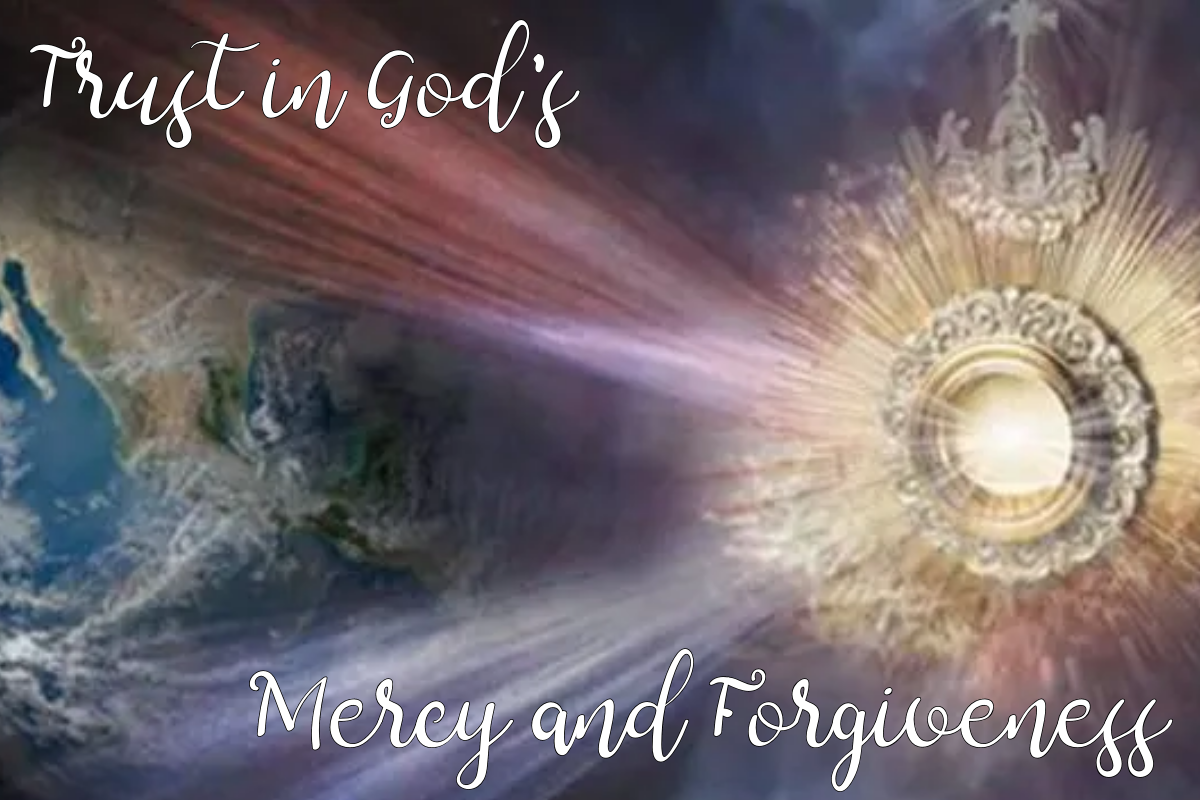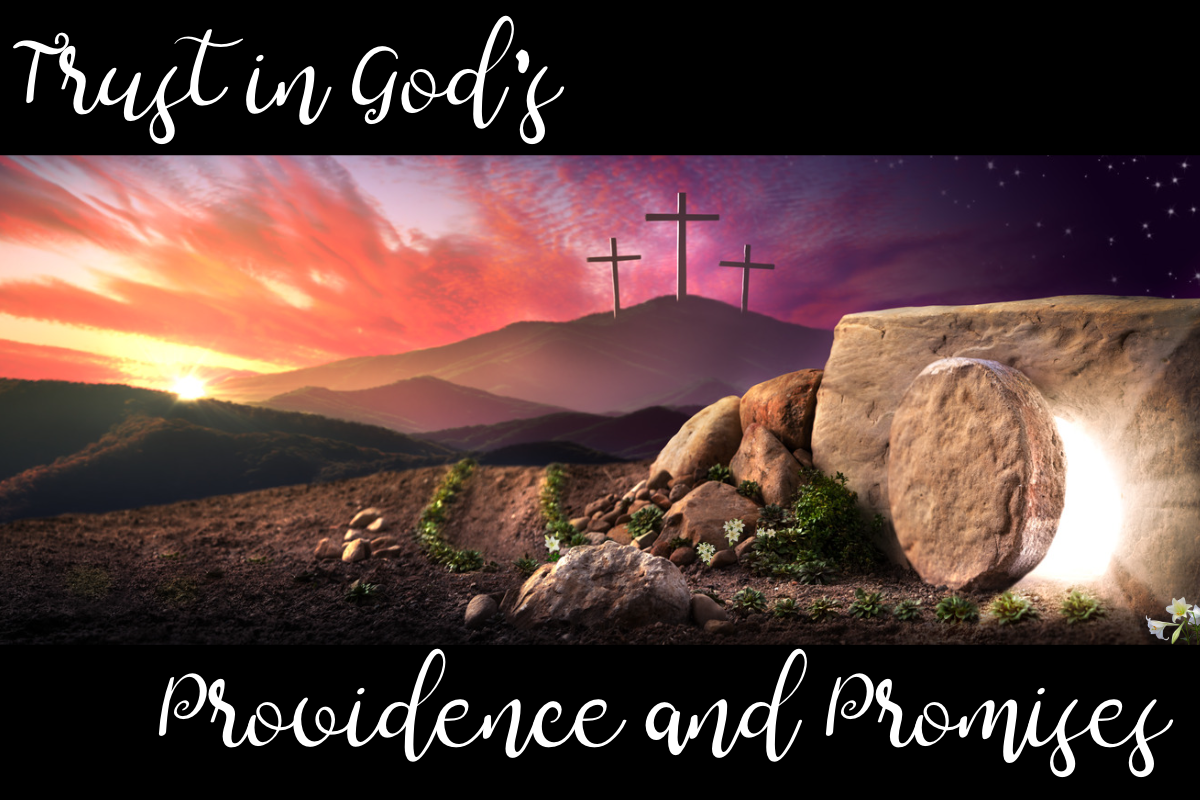"Weekly Challenge" April 2023

Week Beginning April 30, 2023
Trust in God’s Truth and Reality
Our Sunday reading from the Acts of the Apostles exclaims, “save yourselves from this corrupt generation” (Acts 2:40). Nearly two thousand years later, we continue to face corruption; nearly two thousand years later, we continue to try to solve our problems through worldly means. Pope Francis cautions against this tendency, noting that “our Christianity will lose its vigor, and we will cease to be the salt of the earth.” Instead, he suggests we look to God for guidance: “the Gospel gives us new eyes to see. It gives us the grace of discernment, to enable us to approach our own time with openness, but also with a spirit of prophecy.”
In the Gospel, Jesus Christ reveals to us, “I am the way and the truth and the life” (John 14:6). The New Testament uses the Greek word alétheia to convey truth. To better understand what is meant by that, we can break the Greek word down into two parts: a is the negative prefix and lanthano is the root that means “hidden” or “secret.” We come to understand that the “truth” is “not hidden.” It is what is really seen, the accurate view, or the true reality. The Catechism of the Catholic Church explains: “The disciple of Christ consents to ‘live in the truth,’ that is, in the simplicity of a life in conformity with the Lord’s example, abiding in his truth” (CCC 2470).
Truth is factually correct or not false, while reality is actually existing or not fake. Saint Thomas Aquinas asserts that “truth is defined by the conformity of intellect and thing; and hence to know this conformity is to know truth.” In such a way, truth and reality correspond to one another objectively.
We often hear people defining truth and reality subjectively when they refer to “my truth” or “my reality.” Although we may have varying opinions and feelings regarding truth and reality, those opinions do not actually change the facts. Having a subjective view regarding an objective thing does not make that thing subjective. This fragmenting into alternate realities is dangerous, because as a society we lose sight of what actually exists in favor of what is personally convenient. Pope Benedict XVI warns us:
“Many people have no stable points of reference on which to build their lives, and so they end up deeply insecure. There is a growing mentality of relativism, which holds that everything is equally valid, that truth and absolute points of reference do not exist. But this way of thinking does not lead to true freedom, but rather to instability, confusion and blind conformity to the fads of the moment.”
The Catechism of the Catholic Church states: “God is the source of all truth. His Word is truth. His Law is truth” (CCC 2465). It is not uncommon for people to lose sight of this. When that happens, we permit things that go against Divine Law. Just because something is legal, does not mean it is ethical or moral. It was not that long ago that we violated human dignity by permitting slavery and segregation. Regarding those issues, we would not make the case for relativism by stating that one man’s justice is another man’s racism! Inherently, we know that is wrong. Today, abortion and euthanasia are examples of how we continue to disregard the sanctity of human life.
We need to look past what seem like compelling arguments on the surface to behold the underlying truth. Truth is determined at its source–by God–not by our subjective viewpoints. The degree to which something conforms to God is the degree to which it is real; the degree to which it does not conform to God is the degree to which it is fantasy.
When we trust in God’s truth over our own worldly desires, we gain freedom over sin. Following the way of the Lord leads us to the freedom of heaven instead of the confines of hell. Following the way of the Lord provides us with the confidence that “you will know the truth, and the truth will set you free” (John 8:32).
This week, pay attention to how truth and reality are presented when you interact with others and the world around you. Can you recognize how relativism is being used to conceal the Word of God? Trust in God’s truth, and let it set you free.
For more information, please refer to:
Week Beginning October 9, 2022: Justice.

Week Beginning April 23, 2023
Trust in God’s Love and Will
Mass this Sunday incorporates Psalm 16, which is a beautiful prophesy of the Resurrection and a heartfelt testament to trusting in God: “You will show me the path to life, abounding joy in your presence, the delights at your right hand forever” (Psalm 16:11). As we get caught up in our daily trials and tribulations, we often stray from the path that leads us to God and lose sight of His great love for us.
Saint John recounts the love God has for His creation: “For God so loved the world that he gave His only Son, so that everyone who believes in him might not perish but might have eternal life” (John 3:16). This fatherly love for mankind is often referred to using the Greek word agape. It describes a selfless, sacrificial, and unconditional love that seeks the best for others–even at great cost and without personal gain. Beyond loving us, “God is love” (1 John 4:8).
Trusting someone becomes easier when you know that they love you. They have your best interests at heart, so you believe their choices will benefit you and bring you no harm. “For I know well the plans I have in mind for you–oracle of the Lord–plans for your welfare and not for woe, so as to give you a future of hope” (Jeremiah 29:11). At times we must let go of our own limited desires, trusting that God’s plan for us is bigger and better than we can possibly imagine (Ephesians 3:20). “For as the heavens are higher than the earth, so are my ways higher than your ways, my thoughts higher than your thoughts” (Isaiah 55:9).
In the Catholic tradition, God’s will for the human race includes knowing, loving, and serving Him through a life of holiness led in accordance with the teachings of Jesus Christ. Recognizing God’s plan for us and discerning how we can best fulfill His will requires ongoing conversion, patience, and an openness to listen to His voice in our lives.
Trusting in God’s will can be difficult at times, especially when we do not understand it or when things seem challenging and uncertain. In these circumstances, our decision to surrender to God provides extraordinary opportunities to achieve holiness and acquire special graces. Saint Vincent de Paul explains: “If we only knew the precious treasure hidden in infirmities, we would receive them with the same joy with which we receive the greatest benefits, and we would bear them without ever complaining or showing signs of weariness.” Saint Ignatius of Loyola says, “There is no better wood for feeding the fire of God’s love than the wood of the Cross.”
In good times and in bad, Saint Katharine Drexel suggests a simple method to follow the will of God: “Peacefully do at each moment what at that moment ought to be done. If we do what each moment requires, we will eventually complete God’s plan, whatever it is. We can trust God to take care of the master plan when we take care of the details.”
In the spirit of the Easter season, reflect upon the greatest love known to mankind–the love of God. Recognizing the enormity of that love, ask yourself if your loving service to Him is big enough. What do you need to give up in order to make room for the bounty He has in store for you? In other words, what do you need to forego in order to grow? Place yourself in God’s loving hands and surrender to His will. This week, embrace life’s little crosses as occasions to feed the fire of God’s love. Practice offering your hardships to the Lord, with trust that he will see you through.
Please review our previous posts for additional information on love:
Week Beginning November 20, 2022: Charity
Resolve to Love.
For more information on God’s will, please visit:
Week Beginning July 24, 2022: Gratitude in All Circumstances.

Week Beginning April 16, 2023
Trust in God’s Mercy and Forgiveness
Beginning in the year 2000, the Church celebrates Divine Mercy Sunday on the Second Sunday of Easter. On this day, souls seeking mercy are granted the complete forgiveness of sins and the remission of the temporal punishments those sins incur.
Through the death and resurrection of Jesus Christ, we are given new life and new hope. Now, we can experience the transformative power of God’s mercy in our lives. The message of Divine Mercy is particularly relevant in our modern world, where so many of us struggle with feelings of guilt, shame, and unworthiness. Through our sins, we separate ourselves from God. We are unable to reconcile ourselves to Him on our own. Saint Paul assures us: “In him we have redemption by his blood, the forgiveness of transgressions, in accord with the riches of his grace that he lavished upon us” (Ephesians 1:7-8). Regardless of our past, God pours out His mercy and forgiveness when we turn to Him with repentance and faith.
Divine Mercy is available to all who put their faith in Jesus Christ. When we trust in God’s mercy and forgiveness, we are freed from the burden of our sins and empowered to lead lives that honor God. The only “unforgivable sin” is associated with our refusal to accept forgiveness. Mother Angelica reflects:
“The greatest act of distrust you give to God is when you worry about whether He forgave this sin or that sin. When you look back and you wonder, ‘well, did I make a mistake? And maybe I should have taken this turn or that turn.’ We don’t trust that even if I make mistakes, because He loves me–see love and trust go together–because God loves me, He will bring good out of it.”
Pope Saint John Paul II explains:
“If Jesus says that blasphemy against the Holy Spirit cannot be forgiven either in this life or in the next, it is because this ‘non-forgiveness’ is linked, as to its cause, to ‘non-repentance,’ in other words to the radical refusal to be converted.”
As Catholics, we often fear and dread the sacrament of confession, when instead we should appreciate it as the loving gift of mercy that it is. In an apparition to Saint Faustina Kowalska, Jesus reveals the mystery surrounding our sacrament of confession:
“Daughter, when you go to confession, to this fountain of My mercy, the Blood and Water which came forth from My Heart always flows down upon your soul and ennobles it. Every time you go to confession, immerse yourself entirely in My mercy, with great trust, so that I may pour the bounty of My grace upon your soul. When you approach the confessional, know this, that I Myself am waiting there for you. I am only hidden by the priest, but I myself act in your soul. Here the misery of the soul meets the God of mercy. Tell souls that from this fount of mercy souls draw graces solely with the vessel of trust. If their trust is great, there is no limit to My generosity. The torrents of grace inundate humble souls. The proud remain always in poverty and misery, because My grace turns away from them to humble souls” (Diary 1602).
So powerful and sacred is our sacrament of confession, Saint Philip Neri observes, “When the devil has failed in making a man fall, he puts forward all his energies to create distrust between the penitent and the confessor, and so by little and little he gains his end at last.”
As you read the accounts in the Gospel, note all of the instances when Jesus asks the people seeking his help if they think he can cure them. Notice how he strengthens their faith and trust before performing his miracles. The same is true for us. We have to cooperate with God by trusting in Divine Mercy.
Your challenge this week is to go to confession and to follow the usual circumstances to seek the indulgence associated with this holiday. First, make sure there is nothing preventing you from believing with all of your heart, “Jesus, I trust in you!”
Please review our previous posts for more detailed information regarding Divine Mercy:
Divine Mercy
Week Beginning May 22, 2022: Trust in Divine Mercy.
For additional information regarding indulgences, please refer to our previous challenge:
Week Beginning December 18, 2022: Sacrifice.

Week Beginning April 9, 2023
Trust in God’s Providence and Promises
He is risen! Those three words change everything for mankind. If death concludes the story of Jesus, then a story about an inspirational but false prophet ends there. However, He is risen! Death is just the beginning of this greatest story ever told about our Lord and Savior, Jesus Christ. The Catechism of the Catholic Church states: “By his death he has conquered death, and so opened the possibility of salvation to all men” (CCC 1019). The Resurrection proves once again that God keeps His promises and that He is willing to sacrifice for the providential care of His creation. The Resurrection bestows hope for new life by building a ladder from earth to heaven upon which we ascend from the slavery of sin to the freedom of love and mercy. Alleluia!
God’s promises are reliable and eternal. Throughout the Bible, we see numerous examples of God making and fulfilling His promises, including the covenant with Abraham and the prophecy of the Messiah. Moses relays that “God is not a human being who speaks falsely, nor a mortal, who feels regret. Is God one to speak and not act, to decree and not bring it to pass?” (Numbers 23:19).
We learn in Genesis that God creates the heavens, the earth, and everything else. Through His creation, He gives us a world full of beauty and wonder; through His providence, He sustains and cares for us every moment of every day. Jesus assures us when he says, “Look at the birds in the sky; they do not sow or reap, they gather nothing into barns, yet your heavenly Father feeds them. Are not you more important than they?” (Matthew 6:26).
God’s providence is always at work in our lives, guiding and directing us toward His perfect will. He exercises His sovereign control over all things at all times. Even when life appears to be chaotic or uncertain, He remains in control, working out His intentions for our good.
This Easter week, trust with confidence in God’s providence and promises. Rejoice and be glad. For He is truly risen! Alleluia!
For more information on Creation and the Resurrection, please refer to our previous posts:
Stewardship: Our Gift to God
Week Beginning January 1, 2023: Resurrection and Holy Trinity
Week Beginning April 17, 2022: He Is Risen! Go and Make Disciples.

